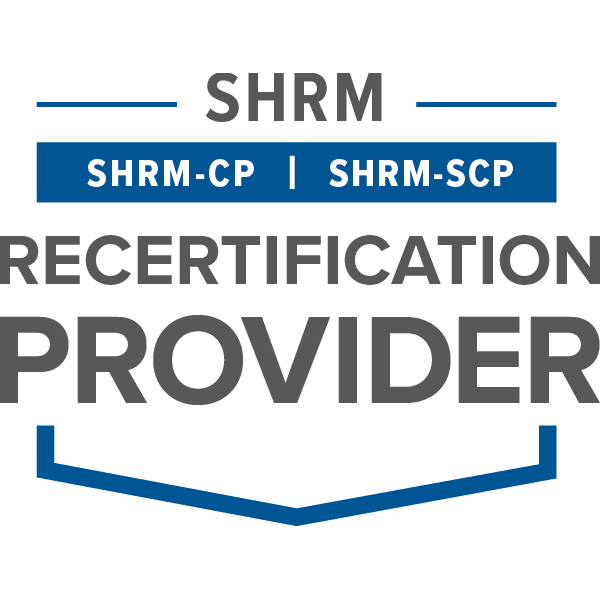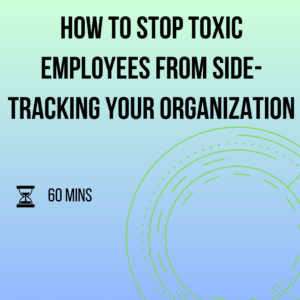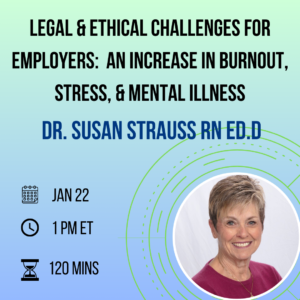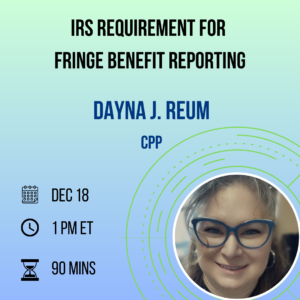Marketing and Empathy Psychology
Artificial Intelligence Compliance Risks for Employers!
1.5 SHRM-approved credit
By - Margie Faulk
Lorem ipsum dolor sit amet, consectetur adipiscing elit. Ut elit tellus, luctus nec ullamcorper mattis, pulvinar dapibus leo.
- 06 Aug - 21 Oct 2022
- 10:00 - 12:00
- December 12, 2024 | Available all day |
- 90 Mins

 This program offers 1.5 SHRM-approved credits.
This program offers 1.5 SHRM-approved credits.
Whether employers realize it or not, Artificial Intelligence (“AI”) currently is used in most workplace. Although AI can be tremendously beneficial in the right circumstances, it also can create significant liability for employers who do not leverage it appropriately.
AI is the use of machines to perform tasks traditionally performed by the human brain. It can take many forms. For instance, generative AI, like ChatGPT, can create documents or presentations from scratch. Algorithmic or decision-making AI use algorithms to screen candidates, and video and voice recognition software can rate a candidate’s cultural fit with your organization. Conversational AI, or chatbots, are used to manage initial complaint intake or employee requests for information. Digital assistants can manage calendars, edit and grammar check documents, and create transcripts or outlines of recorded meetings. This list goes on and on.
First, front-line HR managers and procurement folks who routinely source AI hiring tools do not understand the risks. Second, AI vendors will not usually disclose their testing methods and will demand companies provide contractual indemnification and bear all risk for the alleged adverse impact of the tools.”
Employers can’t rely on a vendor’s assurances that its AI tool complies with Title VII of the Civil Rights Act of 1964. If the tool results in an adverse discriminatory impact, the employer may be held liable, the U.S. Equal Employment Opportunity Commission (EEOC) clarified in new technical assistance on May 18. The guidance explained the application of Title VII of the Civil Rights Act of 1964 to automated systems that incorporate artificial intelligence in a range of HR-related uses.
The EEOC puts the burden of compliance squarely on employers. “[I]f an employer administers a selection procedure, it may be responsible under Title VII if the procedure discriminates on a basis prohibited by Title VII, even if the test was developed by an outside vendor,” the agency states in its technical assistance guidance.
States are also reviewing their exposure to AI and as a result, they already have laws in place related to the use of artificial intelligence in the workplace. This will impact Employers in multi-state locations, especially remote employees.
Why To Attend:
Current cases include Workday Inc., a maker of AI applicant screening software, which is in the middle of a class action lawsuit that alleges its products promote hiring discrimination. The lawsuit, filed in February 2023 alleges that Workday engaged in illegal age, disability, and race discrimination by selling its customers the company’s applicant-screening tools, which use biased AI algorithms.
Other pending court cases will reveal the risk that Employers are taking. They need to prepare to include policies to protect the company, consumers, and employees.
Agenda:
- Learn how AI impacts the workplace and what the risks are according to the Equal Employment Opportunity Commission (EEOC) given discrimination allegations.
- Learn what the EEOC’s new guidelines are for Employers to avoid risk with the vendor tools they use to identify hiring and other AI software they use to streamline their processes.
- Learn what court cases are pending that may determine the fate of known Employers.
- Learn why ChatGPT is huge challenge in the workplace and how it can be a big problem for Employers
- Learn what the definitions are for AI and how you should proceed without violating policies
- Learn what the Chatbots are and what is their function
- Learn what Employers can do to mitigate AI issues and concerns.
- Learn what states already have AI regulations and what the penalties are for violating those regulations.
- Learn what policies Employers should have to avoid non-compliance due to the AI tools they are using.
- Learn how criminal background checks AI tools can violate Ban the Box regulations.
- Learn what safeguards Employers can put in place that will assist in reducing compliance risks.
- Learn how training of managers/supervisors and other professionals should be mandated to attend training to circumvent inadvertent violations due to not being prepared.
Who Should Attend:
- All Employers
- Business Owners
- Company Leadership
- Compliance professionals
- Payroll Administrators
- HR Professionals
- Managers/Supervisors
- Small Business Owners
Vulputate eros arcu magnis donec sem pretium scelerisque a etiam. Eros aliquam elit si mattis phasellus at orci letius ligula posuere. Sodales maecenas facilisis diam egestas dictumst si fames mus fermentum conubia curabitur. Ornare nisi consectetur semper justo faucibus eget erat velit rhoncus morbi.
Speaker Detail

Margie Faulk
Margie Faulk, PHR, SHRM-CP is a senior level human resources professional with over 14 years of HR management and compliance experience. A former Compliance Officer for Federal Defense Contracting Industry, Margie has worked as an HR and Compliance advisor for major corporations and small businesses in the small, large, private, public and Non-profit sectors. Margie is bilingual (Spanish) fluent and Bi-cultural. Margie’s focus is on multi-state, national, state and local workplace compliance. Additionally, Margie is working on International compliance initiatives globally which includes workplace compliance in other countries like the UK, Canada, France, Brazil, China, Africa, Mexico and India, just to name a few. Margie has created and presented seminars/webinars for many compliance institutes. These national training providers, offer compliance training to professionals, business owners and companies interested in having their company compliant with workplace and industry regulations. Margie holds professional human resources certification (PHR) from the HR Certification Institution (HRCI) and SHRM-CP certification from Society for Human Resources Management. Margie has completed the Certified Compliance and Ethics Professional training and is a member of the Society of Corporate Compliance & Ethics (SCCE).
Webinar Information
- Duration : 90 Mins
- Date: December 12, 2024 | Available all day
- 06 Aug - 21 Oct 2022
- 10:00 - 12:00
- Jakarta, Indonesia
Share this event
Related products
-

From Conflict to Cooperation: A HR Expert’s Guide In Handling Toxic Employees
$199.00 – $349.00 Select options -
Sale!

2024 Payroll Boot Camp: Elevate Your Expertise
$499.00 – $699.00 Select options -

Legal & Ethical Challenges for Employers: An Increase In Burnout, Stress, & Mental Illness
$199.00 – $349.00 Select options -

2024 IRS Updates for Taxation of Fringe Benefits
$199.00 – $349.00 Select options



